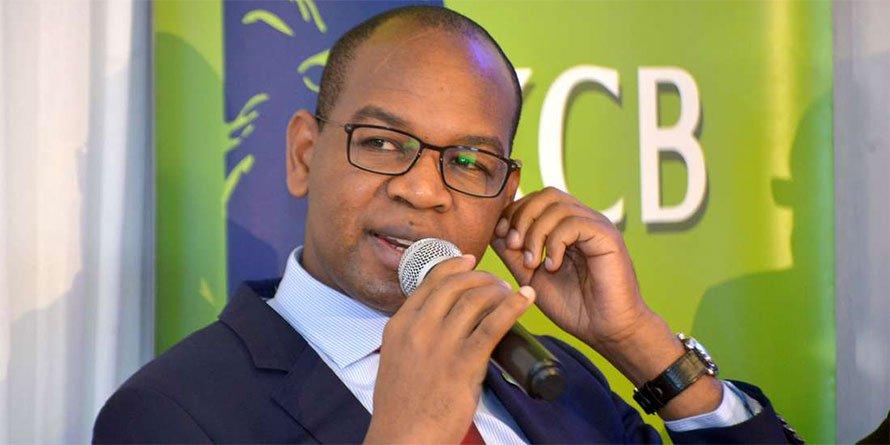KCB Bank Kenya and the Kenya National Chamber of Commerce and Industries (KNCCI) Mombasa Chapter have signed a partnership to accelerate the provision of credit to enterprises.
In a statement, the partners say the deal will see micro, small, and medium-sized enterprises (MSMEs) access financial and non-financial solutions to help them recover from the fallout occasioned by the Covid-19 pandemic.
KCB Bank Acting Director of Retail Banking Michael Kungu said the partnership will enable MSMEs greater access to financing, helping them to improve their livelihoods while contributing to the country’s recovery from the pandemic.
“We are excited about this partnership with the Mombasa Chapter, it enables us to open a path for more credit to the Small and Medium-Sized entrepreneurs,” he said in Mombasa during the sign off ceremony.
Beyond the credit line, members of the KNCCI Mombasa chapter will also access non-financial solutions including advisory, networking opportunities, training, and favourable loan terms.
The three-year partnership targets MSMEs in various sectors including hospitality and tourism, retail, trade and manufacturing.
Eligible MSMEs include those who are not currently banking with KCB Bank.
Kenya: Women own half the 1.3 million MSMEs
The Bank has also signed similar partnerships with other Chapters of the KNCCI including Busia, Tana River, Central and Eastern Kenya Chapters.
Earlier this year, the bank introduced a discounted financing facility targeting their MSME customers who operations were hurt by the impact of the pandemic.
Under the deal, KCB made it possible for MSMEs to access both secured and unsecured financing for acquisition of trading assets and working capital to support business activities and preserve jobs by strengthening their resilience in the long-term.
KCB Bank Kenya said beneficiaries would receive financing solutions ranging between KShs.100,000 to KShs.5 million and payable within 36 month.
KCB Bank Kenya Director of Retail Anastasia Kimtai said the facility was intended to enable MSMEs to restart and rebuild.
“These business enterprises are the lifeblood of our economy; we are going the extra mile to ensure they are adequately financed to weather these testing times and contribute to economic recovery and growth,” she said during the launch of the service.
In October 2020, KCB also received approval for US$150 million, from the International Finance Corporation (IFC) as a lead syndicator, to support the growth of the Bank’s sustainable climate finance portfolio and scale-up lending to micro, small and medium enterprises including women-owned businesses.
The credit line has been contributing to the economic growth of the Kenyan economy by helping develop green lending and creating employment, especially for women-owned businesses.
As earlier reported by The Exchange Africa, ICT and Agriculture are the leading host sectors for MSMEs in Kenya.
The 2021 MSMEs Survey Report by Kenya Bankers Association also ranked manufacturing and construction among the dominant hubs for the enterprises that collectively create an estimated 15 million employment opportunities in the economy.
The study, conducted by the KBA Centre for Research on Financial Markets and Policy in collaboration with the Japan International Cooperation Agency (JICA) in May this year, further indicates over 90 percent of the 279 MSMEs sample analyzed were registered, signaling a high level of formalization.
The report also found that majority of MSMEs owners are males at 77 percent, highly educated with 54.5 percent having a bachelor’s degree level of education.
In addition, close to two-thirds or 63 percent of enterprise owners had been in employment for more than six years before starting their enterprises.
In terms of employment patterns- that define the size of the enterprise- most of the enterprises surveyed (85 percent) are micro, with less than ten full-time employees; only 9 percent of the enterprises are small (10-49 full-time employees), while the rest (6 percent) are medium-sized (50-99 full-time employees).
Further, nine in every ten (90 percent) are registered, with about half (53%) of them being incorporated companies and 35 percent operated as sole proprietorship.
Most of the enterprises (80 percent) operate a bank account in their business name, while the rest (20 percent) use personal accounts.
“On utilisation of both formal and informal financial instruments, most enterprises have and /or have previously operated a savings account, with only 29 percent not having had a savings account before,” the report reveals.
Additionally, the finding states that 54 percent of the enterprises seek personal loans while 46 percent obtain credit for business support.
